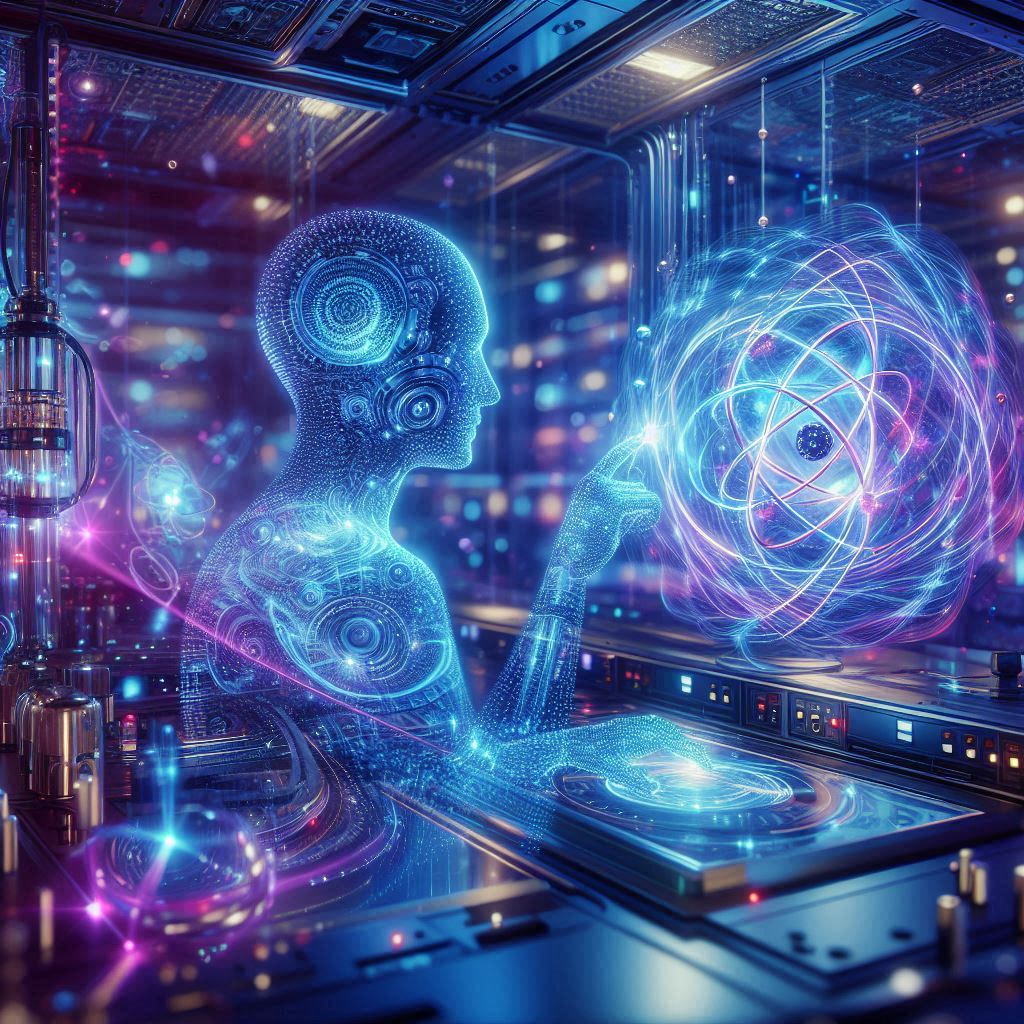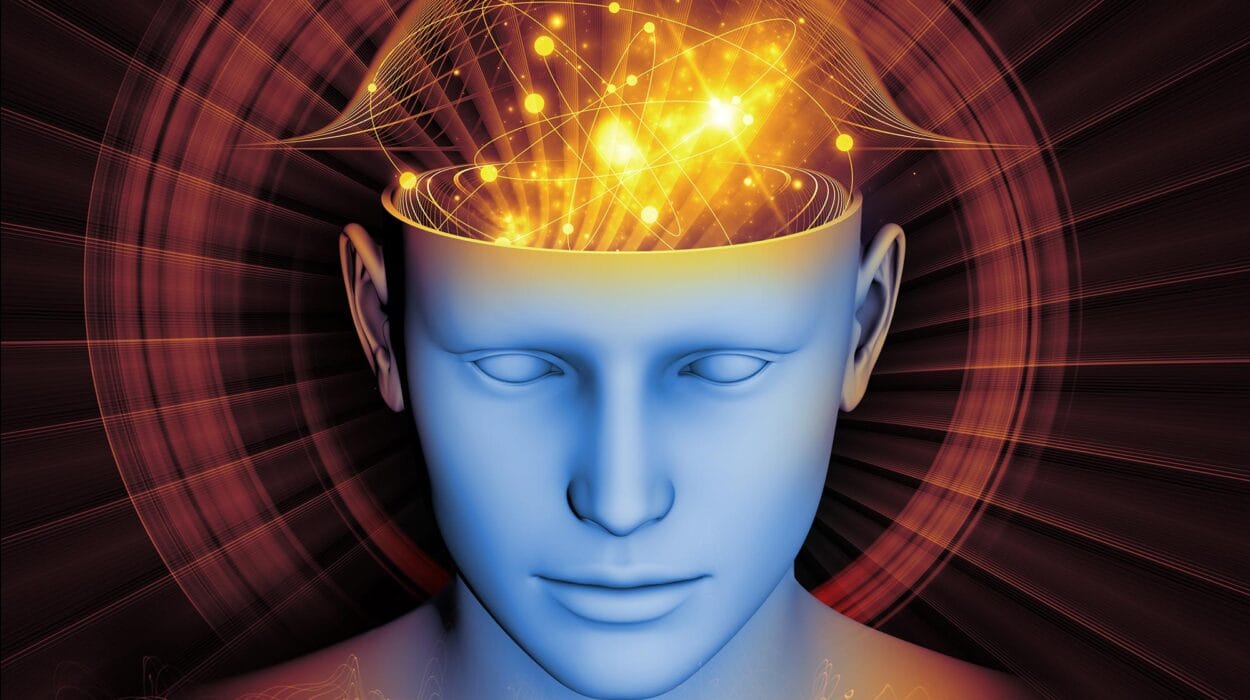The 21st century has ushered in two of the most transformative technological paradigms in human history: artificial intelligence (AI) and quantum computing. Each on its own represents a monumental leap in computational power and cognitive capability. AI seeks to replicate and extend human intelligence through algorithms that learn from data, while quantum computing redefines the very foundation of computation by harnessing the strange, probabilistic laws of quantum mechanics. When these two revolutionary domains intersect, they promise to reshape not only how we compute but how we understand and interact with the universe itself.
The relationship between AI and quantum computing is not one of competition but of symbiosis. Quantum computing offers the possibility of accelerating and enhancing AI algorithms beyond classical limits, while AI can help optimize and control the complex processes that underpin quantum systems. Together, they represent a fusion of intelligence and physics—one that could redefine medicine, materials science, cybersecurity, finance, and even our understanding of consciousness and information itself.
To fully appreciate the potential of this relationship, we must explore the foundations of both technologies, their convergence, and the profound implications that arise when artificial cognition meets quantum reality.
The Foundations of Artificial Intelligence
Artificial intelligence is a field of computer science that aims to build machines capable of performing tasks that typically require human intelligence. These tasks include learning, reasoning, perception, language understanding, and decision-making. The roots of AI trace back to the 1950s, when pioneers like Alan Turing, John McCarthy, and Marvin Minsky envisioned machines that could think. Turing’s question, “Can machines think?” catalyzed decades of research into symbolic reasoning, machine learning, and neural networks.
Classical AI relied heavily on symbolic approaches—rule-based systems that attempted to encode human knowledge explicitly. However, the explosion of data and computing power in the late 20th and early 21st centuries led to the rise of machine learning and deep learning, where systems learn patterns directly from data without explicit programming. These models—especially deep neural networks—became the backbone of modern AI, enabling advances in computer vision, natural language processing, and reinforcement learning.
The power of AI comes from its ability to approximate complex functions. Given enough data, neural networks can model intricate relationships that elude human understanding. Yet, despite their success, these models are still constrained by classical computing hardware. Training large-scale AI systems demands immense computational resources and energy. Tasks like optimizing billions of parameters in deep learning models push even the most advanced supercomputers to their limits. Here, quantum computing enters as a potential game-changer.
The Foundations of Quantum Computing
Quantum computing is not merely a faster version of classical computing—it is a completely different paradigm. Classical computers encode information in bits that take values of 0 or 1. Quantum computers use quantum bits, or qubits, which can exist in a superposition of both 0 and 1 simultaneously. This superposition, along with entanglement and interference, allows quantum systems to process vast amounts of information in parallel.
The mathematical formalism behind quantum computing comes from quantum mechanics, the branch of physics describing the behavior of matter and energy at the smallest scales. In a quantum computer, computation occurs through the manipulation of quantum states using quantum gates. These gates are unitary transformations that evolve qubits coherently through Hilbert space—a high-dimensional mathematical space where quantum states reside.
While classical algorithms evaluate possible solutions sequentially, quantum algorithms exploit parallelism inherent in quantum states. For example, Grover’s algorithm can search an unsorted database quadratically faster than any classical method, and Shor’s algorithm can factor large integers exponentially faster, threatening current cryptographic systems.
Yet building practical quantum computers is an enormous challenge. Qubits are fragile and prone to decoherence—loss of quantum information due to environmental noise. To perform reliable computations, error correction and noise mitigation techniques are required, which in turn demand many physical qubits for each logical qubit. Companies like IBM, Google, and IonQ are pioneering various hardware approaches—superconducting circuits, trapped ions, photonic qubits, and topological qubits—to overcome these obstacles.
As quantum hardware continues to mature, researchers are exploring how quantum computation can enhance artificial intelligence, and conversely, how AI can aid in the control and optimization of quantum systems.
Comparing the Computational Paradigms
Classical and quantum computing differ not just in hardware but in the fundamental nature of computation itself. Classical computation is deterministic, meaning every operation has a predictable output. Quantum computation is probabilistic, with results represented as probability amplitudes that collapse upon measurement.
AI, as it stands today, is built atop classical architectures. Its algorithms, from gradient descent to backpropagation, are deterministic approximations of stochastic processes. Quantum computing, however, inherently embodies probabilistic behavior. The synergy between probabilistic learning and quantum uncertainty creates fertile ground for a new computational paradigm—quantum artificial intelligence (QAI).
In practical terms, classical AI struggles with high-dimensional optimization and sampling problems. Training a neural network involves searching an immense parameter space, and many optimization problems are non-convex with numerous local minima. Quantum computers, through superposition and tunneling, could potentially explore these spaces more efficiently, avoiding local minima that trap classical algorithms.
Moreover, quantum parallelism could dramatically accelerate linear algebra operations—matrix multiplications, eigenvalue decompositions, and vector projections—that form the mathematical backbone of AI. A quantum computer could theoretically perform these computations exponentially faster in certain cases, enabling the training of models that would be infeasible on classical hardware.
Quantum Machine Learning: A New Frontier
Quantum Machine Learning (QML) represents the intersection of quantum computing and AI. It seeks to design algorithms that use quantum principles to enhance learning and decision-making. QML can be thought of as existing along two dimensions: using quantum computers to improve AI algorithms, and using AI to improve quantum computing processes.
In the first dimension, quantum-enhanced AI, quantum computers could perform subroutines—such as kernel estimation, sampling, and optimization—faster than classical systems. Hybrid quantum-classical models are already being explored, where a quantum processor handles specific computations while a classical computer orchestrates the overall learning process. Variational Quantum Circuits (VQCs) are a prominent example: they parameterize quantum operations using tunable gates, trained via gradient-based optimization in a hybrid loop.
Quantum neural networks (QNNs) extend this concept further by encoding data directly into quantum states and learning transformations through unitary evolution. These systems, though still experimental, could one day outperform classical deep networks on specific tasks, especially those involving quantum data such as molecular simulations or quantum sensor readings.
In the second dimension, AI aids quantum computing by optimizing qubit control, reducing noise, and enhancing quantum error correction. Machine learning models can identify error patterns, predict decoherence events, and optimize quantum gate sequences. Reinforcement learning is particularly promising, as it can dynamically adapt quantum operations based on feedback from the system, improving stability and coherence times.
Quantum Computing as an Accelerator for AI
The potential of quantum computing to accelerate AI stems from its ability to handle complex mathematical structures more efficiently than classical systems. Many AI problems reduce to solving systems of equations, optimizing cost functions, or sampling from high-dimensional distributions. Quantum algorithms offer exponential or polynomial speedups in several of these domains.
For instance, the Quantum Approximate Optimization Algorithm (QAOA) and the Quantum Variational Eigensolver (VQE) can tackle optimization problems foundational to AI model training. Quantum annealing, implemented by systems like D-Wave, explores solution spaces via quantum tunneling, offering potential advantages in finding global minima for non-convex optimization landscapes.
Quantum linear algebra algorithms can accelerate data-intensive operations such as matrix inversion, principal component analysis (PCA), and support vector machine classification. The Harrow-Hassidim-Lloyd (HHL) algorithm is particularly notable for solving linear systems exponentially faster under certain conditions, though it requires constraints on data encoding and readout.
Another area where quantum computing could revolutionize AI is probabilistic inference. Many machine learning models rely on sampling from probability distributions—an inherently time-consuming process. Quantum sampling methods could generate representative samples more efficiently, enabling faster Bayesian inference, probabilistic graphical model training, and generative model evaluation.
If realized, these capabilities would not just speed up existing AI but enable entirely new forms of intelligence—models that learn and reason with quantum-scale complexity.
AI as an Enabler of Quantum Advancement
While quantum computing promises to accelerate AI, AI is already playing a crucial role in advancing quantum technologies. The control and calibration of quantum hardware are extraordinarily complex tasks. Each qubit must be precisely manipulated, isolated from noise, and entangled with others according to exact protocols. Human engineers cannot feasibly manage these parameters manually at scale, but AI can.
Machine learning algorithms are increasingly used to model qubit behavior, predict error rates, and optimize gate fidelities. Supervised learning models trained on experimental data can identify noise sources and predict decoherence times. Reinforcement learning agents can autonomously discover optimal pulse sequences and feedback control strategies that maximize coherence.
Neural networks can also serve as surrogate models for quantum simulators, approximating expensive computations to accelerate research. Deep learning architectures can infer the outcomes of quantum experiments without performing full quantum simulations, significantly reducing computational cost.
Moreover, AI aids quantum algorithm discovery. Generative models can explore the vast space of possible quantum circuits and suggest novel architectures optimized for specific tasks. These techniques mirror the way AI has been used to discover new protein structures or chemical compounds, now applied to the domain of quantum information.
This mutual reinforcement—AI accelerating quantum progress and quantum computing accelerating AI—defines their symbiotic relationship.
The Role of Data in the Quantum-AI Ecosystem
Data is the lifeblood of AI, and it plays an equally pivotal role in quantum systems. However, quantum data differs fundamentally from classical data. Quantum data can encode complex correlations and entanglement that classical data cannot capture. As quantum sensors and simulators become more prevalent, AI systems will need to learn directly from quantum data distributions, giving rise to quantum-native learning paradigms.
Encoding classical data into quantum states is a major challenge. Techniques such as amplitude encoding and angle encoding translate data vectors into qubit amplitudes, but these mappings are computationally expensive. Efficient quantum data encoding remains an open research problem. Once encoded, however, quantum systems can process these data structures in ways classical computers cannot—performing operations in exponentially larger Hilbert spaces.
Conversely, AI plays a role in extracting useful classical information from quantum results. Since measurement collapses quantum states, only a subset of information can be retrieved. AI-based inference models can reconstruct underlying distributions from limited quantum measurements, improving the efficiency of quantum experiments.
In the long term, a hybrid ecosystem will emerge where data flows seamlessly between quantum and classical domains. Quantum computers will process high-dimensional quantum data, while classical AI will interpret, refine, and contextualize the results.
Quantum-AI Integration in Key Domains
The convergence of AI and quantum computing is poised to transform multiple industries. In pharmaceuticals, quantum-AI models can simulate molecular interactions with unprecedented precision, accelerating drug discovery. AI can identify promising compounds, while quantum simulations predict their chemical properties accurately.
In materials science, quantum-AI systems can design new materials with tailored properties by exploring vast combinatorial spaces of molecular configurations. These breakthroughs could lead to high-efficiency batteries, superconductors, and catalysts critical for clean energy.
In finance, quantum-enhanced AI could revolutionize portfolio optimization, risk modeling, and fraud detection. Financial systems involve stochastic processes that benefit from quantum sampling and probabilistic modeling.
In cybersecurity, quantum computing threatens current encryption but also offers quantum-resistant cryptographic techniques. AI models can assist in detecting vulnerabilities and devising adaptive security mechanisms that integrate quantum key distribution.
In climate modeling, quantum-AI systems could simulate complex systems with millions of interacting variables, capturing nonlinear phenomena that classical models cannot.
Each of these domains illustrates not just incremental improvement but qualitative transformation, where problems previously considered intractable become solvable.
Ethical and Societal Implications
The rise of quantum-AI integration raises profound ethical, social, and philosophical questions. Quantum computing’s potential to break existing encryption threatens digital privacy and global security. At the same time, AI’s capacity for autonomous decision-making introduces issues of accountability and fairness.
As these technologies merge, the risks compound. A quantum-enhanced AI could possess computational capabilities beyond human comprehension. Its decision-making processes might become opaque even to its creators, challenging our ability to maintain oversight and control. Ensuring transparency, interpretability, and ethical alignment becomes paramount.
There are also concerns about inequality. Quantum computers are expensive and require specialized infrastructure, potentially centralizing power in the hands of a few organizations or nations. Without equitable access, the quantum-AI revolution could exacerbate global disparities.
Governance frameworks will need to evolve to address these challenges. Ethical AI principles—such as fairness, accountability, and transparency—must be extended into the quantum domain. International collaboration will be crucial to ensure that quantum-AI technologies benefit humanity collectively rather than concentrate power.
The Path Toward Quantum-AI Synergy
The journey toward full quantum-AI integration is still in its early stages. Current quantum computers operate in the noisy intermediate-scale quantum (NISQ) era, with limited qubits and significant error rates. Despite these constraints, hybrid quantum-classical systems are emerging as a practical bridge to the future.
Research into variational hybrid algorithms, quantum-inspired classical models, and error-tolerant architectures continues to advance rapidly. AI is helping design quantum error correction codes, optimize compilation pipelines, and predict qubit performance. Meanwhile, quantum-inspired classical algorithms—techniques that mimic quantum principles without quantum hardware—are improving efficiency in AI workloads today.
Over the coming decade, progress in both fields will likely be iterative and reciprocal. As quantum hardware scales, AI will help manage complexity; as AI models grow more capable, they will demand the power quantum computing can provide. This cycle of co-evolution mirrors the symbiotic growth of computing hardware and software throughout technological history.
The Future Landscape: Quantum Intelligence
Ultimately, the convergence of AI and quantum computing points toward a new form of intelligence—quantum intelligence. This is not merely AI running on faster hardware but a fundamentally different cognitive paradigm. A quantum-intelligent system could reason probabilistically, perceive superpositions of possibilities, and learn from interference patterns rather than deterministic data points.
Such systems may model complex, entangled realities—social networks, biological systems, global economies—with fidelity that classical AI cannot achieve. They could infer insights not from single data points but from the quantum correlations underlying them.
The philosophical implications are immense. If human cognition itself is influenced by quantum processes, as some theories suggest, quantum-AI systems might one day emulate aspects of consciousness or creativity previously thought exclusive to biological brains. While this remains speculative, it illustrates the transformative potential of merging intelligence with quantum mechanics.
The rise of quantum intelligence could redefine what it means to “understand.” It may enable forms of reasoning that transcend classical logic—an intelligence that navigates probability rather than certainty, exploring reality not as fixed but as a wave of potential outcomes.
Conclusion
The relationship between quantum computing and artificial intelligence is not a competition but a partnership—a symbiosis where each amplifies the other’s strengths and mitigates its weaknesses. AI offers control, optimization, and pattern recognition, while quantum computing provides speed, parallelism, and fundamentally new ways of representing and processing information.
Together, they promise to usher in an era of computational transformation, where the boundaries of what is computable and knowable expand dramatically. From solving intractable scientific problems to designing intelligent systems beyond current imagination, the convergence of quantum computing and AI represents the next great leap in human innovation.
The path ahead will not be simple. It demands breakthroughs in physics, mathematics, engineering, and ethics. But if humanity can navigate these challenges, the fusion of quantum computation and artificial intelligence may lead to a new dawn of discovery—a world where machines do not merely process data but grasp the deep quantum fabric of reality itself.






